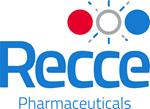Recce Pharmaceuticals Ltd is pleased to provide an update from its preclinical studies evaluating RECCE® 327 (R327) against the SARS-CoV-2 virus.
Highlights:
- RECCE® 327 (R327) was shown to significantly reduce SARS-CoV-2 levels in hamsters, the gold-standard in COVID-19 preclinical animal models
- New patents lodged supporting anti-infective capability in Brazil, Canada, China, Israel, India and Vietnam
- SARS-CoV-2 studies in Australia concluded following a mutual agreement
SYDNEY, Australia, Oct. 18, 2022 (GLOBE NEWSWIRE) --Recce Pharma Ltd (ASX:RCE, FSE:R9Q) (the Company), the Company developing a new class of synthetic anti-infectives, is pleased to provide an update from its preclinical studies evaluating RECCE® 327 (R327) against the SARS-CoV-2 virus. The studies were conducted by Viroclinics, an independent, third-party contract research organization (CRO) based in the Netherlands.
“The data received from Viroclinics indicates the potential of R327’s capabilities as a treatment for viral infections," said James Graham, Chief Executive Officer of Recce Pharmaceuticals. “Conducting our SARS-CoV-2 study in the Netherlands reaffirms the Company’s intention to address the ongoing effects that Europe has experienced throughout the pandemic.”
R327 demonstrated significantly efficacious activity against the SARS-CoV-2 virus in Syrian golden hamsters – the gold standard in preclinical COVID-19 studies.1 The study aimed to investigate the therapeutic efficacy of R327 administered via the intranasal route against the delta variant of SARS-CoV-2 in the hamster model. This route was chosen as SARS-CoV-2 infection is primarily located in the respiratory tract.
The study consisted of five groups of 12 hamsters infected intranasally with SARS-CoV-2 prior to being treated twice daily, with either a low (200 mg/kg), mid (400 mg/kg), or high (600 mg/kg) dose of R327. Treatment commenced four (4) hours after the infection was initiated.
SARS-CoV-2 levels in infected animals were quantified using two techniques; qPCR, which measures viral genetic material and cannot distinguish between live and dead viruses, and TCID50, which measures live infectious viruses. Using these two different techniques, treatment with R327 was shown to significantly reduce SARS-CoV-2 levels in a dose-dependent manner in throat swab samples collected from these animals. This study provides proof-of-concept that intra-nasal treatment with R327 has the potential to reduce SARS-CoV-2 levels during infection. Recce is delighted by the results, but further testing must be completed before confirming R327 to be safe or effective against the SARS-CoV-2 virus, such as human clinical studies.
The Company has moved quickly to lodge further patent applications; with claims including, but not limited to:
- Composition/method of manufacture of RECCE anti-infectives
- Use of R327 or R529 for the treatment of viruses having a lipid envelope or coat, examples being SARS-CoV-2 and coronaviruses, influenza viruses, HIV, hepatitis, Ross River and herpes viruses
- Administration of R327 or R529 by oral, injection, inhalation and transdermal dose applications
On July 8, 2020, the Company announced that investigations into the efficacy of R327 had commenced. In those investigations conducted by the CSIRO, R327 did not fulfill the agreed criteria required for the CSIRO to commence in-vivo animal testing (in ferrets). Accordingly, the Company and CSIRO have discontinued investigations related to R327, and the Company thanks CSIRO for its assistance.
Considering the positive study results from the SARS-CoV-2 in-vivo hamster study at Viroclinics, the Company will consolidate its focus on anti-viral (COVID-19) studies overseas.
About Recce Pharmaceuticals Ltd
Recce Pharmaceuticals Ltd (ASX: RCE, FSE: R9Q) is developing a New Class of Synthetic Anti-Infectives designed to address the urgent global health problems of antibiotic-resistant superbugs and emerging viral pathogens.
Recce’s anti-infective pipeline includes three patented, broad-spectrum, synthetic polymer anti-infectives: RECCE® 327 as an intravenous and topical therapy that is being developed for the treatment of serious and potentially life-threatening infections due to Gram-positive and Gram-negative bacteria including their superbug forms; RECCE® 435 as an orally administered therapy for bacterial infections; and RECCE® 529 for viral infections. Through their multi-layered mechanisms of action, Recce’s anti-infectives have the potential to overcome the hypercellular mutation of bacteria and viruses – the challenge of all existing antibiotics to date.
The FDA has awarded RECCE® 327 Qualified Infectious Disease Product designation under the Generating Antibiotic Initiatives Now (GAIN) Act – labelling it for Fast Track Designation, plus 10 years of market exclusivity post approval. Further to this designation, RECCE® 327 has been included on The Pew Charitable Trusts Global New Antibiotics in Development Pipeline as the world’s only synthetic polymer and sepsis drug candidate in development. RECCE® 327 is not yet market approved for use in humans with further clinical testing required to fully evaluate safety and efficacy.
Recce wholly owns its automated manufacturing, which is supporting present clinical trials. Recce’s anti-infective pipeline seeks to exploit the unique capabilities of its technologies targeting synergistic, unmet medical needs.
Corporate Contact
James Graham
Recce Pharmaceuticals Ltd
+61 (02) 9256 2571
James.graham@recce.com.au
Media and Investor Relations (AU)
Andrew Geddes
CityPR
+61 (02) 9267 4511
ageddes@citypublicrelations.com.au
Media and Investor Relations (USA)
Jordyn Temperato
LifeSci Communications
jtemperato@lifescicomms.com
Photos accompanying this announcement are available at
https://www.globenewswire.com/NewsRoom/AttachmentNg/27a71f8a-f560-4d22-aa24-734e9504303d
https://www.globenewswire.com/NewsRoom/AttachmentNg/411e717c-7bac-4592-afb7-cdb7e2111a5f
__________________________
1https://www.criver.com/eureka/syrian-hamsters-starring-role-covid-19-research

Figure 1
SARS-COV-2 50% Tissue Culture Infectious Dose (TCID50) measurement in response to treatment with R327 in Syrian golden hamsters.
Figure 2







